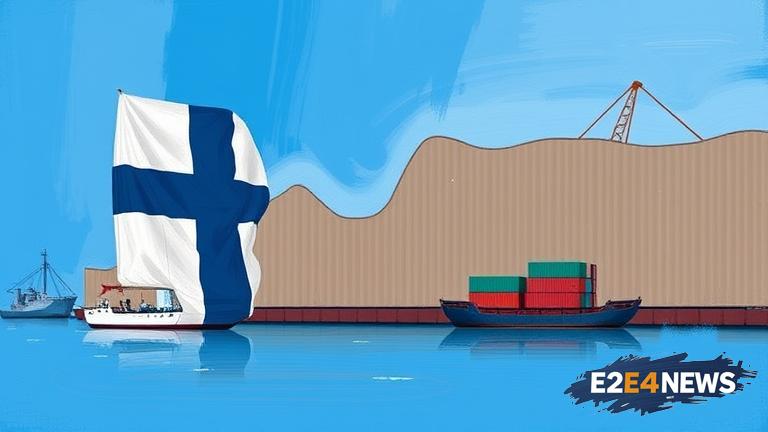Finland’s trade surplus has experienced a notable decline in June, as reported by the Finnish Customs. The country’s trade balance, which is the difference between the value of exports and imports, has been a crucial indicator of Finland’s economic health. In June, the trade surplus was significantly lower than expected, raising concerns about the potential impact on the country’s economy. The decline in trade surplus can be attributed to a decrease in exports, particularly in the forestry and electronics sectors. The forestry sector, which is a significant contributor to Finland’s economy, has been facing challenges due to the decline in demand for paper and pulp products. The electronics sector, another major export industry, has also been experiencing a slowdown due to the global economic downturn. The decline in exports has been further exacerbated by the strengthening of the euro, which has made Finnish products more expensive for foreign buyers. On the other hand, imports have remained relatively stable, with a slight increase in the importation of goods such as machinery and transportation equipment. The trade deficit in June was largely due to the significant decline in exports, which outweighed the slight increase in imports. The Finnish government has expressed concerns about the decline in trade surplus, citing the need for measures to boost exports and improve the country’s competitiveness. The government has also emphasized the importance of diversifying Finland’s export markets and reducing dependence on a few key industries. The decline in trade surplus has also raised concerns about the potential impact on employment, particularly in the forestry and electronics sectors. The Finnish economy has been experiencing a slowdown in recent months, with a decline in GDP growth and an increase in unemployment. The decline in trade surplus is likely to further exacerbate these economic challenges. Despite these challenges, Finland’s economy remains one of the most stable in the EU, with a strong focus on innovation and technology. The country has also been investing heavily in renewable energy and sustainable development, which is expected to drive economic growth in the long term. However, in the short term, the decline in trade surplus is likely to pose significant challenges for the Finnish economy. The government has announced plans to implement measures to boost exports, including increasing funding for export promotion and providing support for small and medium-sized enterprises. The government has also emphasized the importance of improving the business environment and reducing bureaucracy to attract foreign investment. The decline in trade surplus has also sparked concerns about the potential impact on the country’s fiscal policy, with some experts warning that the government may need to revise its budget projections. Overall, the decline in Finland’s trade surplus in June is a significant concern for the country’s economy, and the government will need to take swift action to address the challenges and boost exports. The situation will be closely monitored by economists and policymakers, who will be watching for any signs of improvement or further decline in the trade balance. The Finnish economy is expected to remain a key focus of attention in the coming months, as the government works to address the challenges posed by the decline in trade surplus.





